Flushing Cannabis Plants: What It Is, When to Do It, and Whether It's Necessary
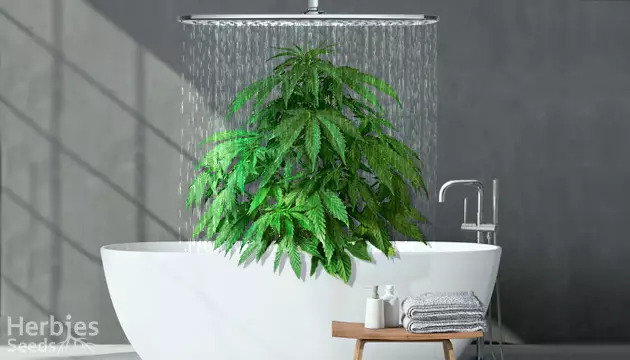
Flushing cannabis is one of the most debated topics among growers. Some swear by it, claiming it improves the flavor and smoothness of their buds. Others see it as unnecessary, especially with organic cultivation methods. So, what’s the truth?
In this article, we’ll answer the most common questions:
- What does flushing cannabis mean?
- Is flushing cannabis necessary?
- When should you start flushing cannabis?
Let’s break it all down.
What Is Flushing Cannabis?
Flushing is a technique used by growers in the final weeks before harvest to improve the quality and smoothness of cannabis without nutrients. It involves watering your plants with plain, pH-balanced water (typically with a pH level between 6.0 and 6.8 for soil) to remove residual salts, synthetic nutrients, and minerals. The goal is to clear out excess nutrients from the soil or growing medium, potentially reducing nutrient burn and improving taste.
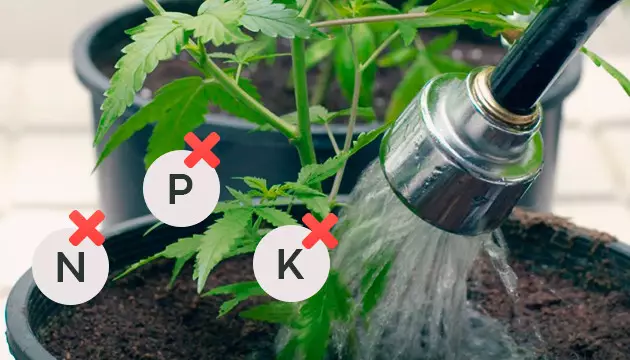
It's thought that this practice produces cleaner, better-tasting buds without the harshness occasionally produced by remaining nutrients.
Is Flushing Cannabis Really Necessary?
The need to flush cannabis plants depends on how you’re growing cannabis – specifically, the growing media and nutrients you're using.
Why Growers Flush
- Better taste and aroma: Cannabis growers assert that pre-harvest flushing results in smoother, more flavorful smoke. Meanwhile, flushing cannabis when nutrient deficiencies or nutrient lockout occurs helps to wash out excess buildup in the soil, allowing the plant’s roots to once again absorb the nutrients they need.
- Smooth smoke: Less harshness when smoking or vaping the final product.
- Whiter ash: White ash is allegedly produced by flushed buds instead of black ash, said to indicate purity.
Why Some Avoid Flushing
- Organic producers often use living soil with slow-release nutrients and microbial populations so that flushing is less necessary.
- Scientific studies (e.g., Rx Green Technologies research) have shown no measurable difference in cannabinoid or terpene content between flushed and nonflushed buds.
- Overflushing stresses plants, reduces yields, and can induce premature yellowing.
Verdict
If you're cultivating with synthetic nutrients or hydroponically, flushing will be beneficial. If you're cultivating organically in living soil, it may not be necessary.
When to Start Flushing Cannabis
The timing of your flush will largely depend on the type of growing medium you’re using. Each medium absorbs and releases nutrients differently, which affects how quickly you’ll want to flush the root zone before harvest.
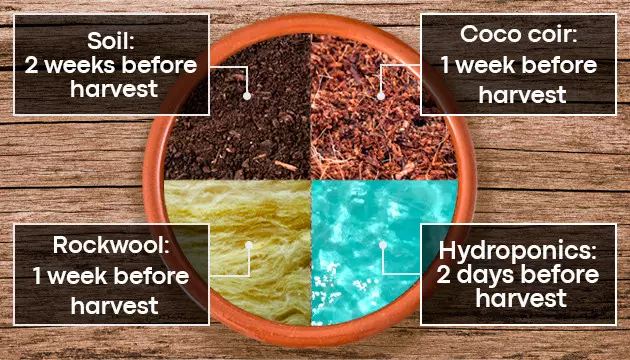
If growing in soil, you’ll want to begin flushing anywhere from 10 to 14 days before your desired harvest date. Soil is a nutrient-holding medium when compared to others, so your plants will take longer to fully flush and remove any stored fertilizers.
For coco or rockwool growers, flushing should begin a little earlier, typically 7 to 10 days before harvest. Both of these mediums hold less residual salts compared to soil, and thus the process is faster and more efficient.
In hydro systems, the window is even shorter. Since the plant's nutrient uptake in hydro systems happens instantly, you can flush out 2 to 5 days before harvesting. This is generally long enough to flush out the system, and the plant may use up its internal reservoir of stored nutrients. Flushing hydroponically grown plants is as easy as draining the water from their system and replacing it with fresh water that’s properly pH-balanced.
For the most part, observe your trichomes closely with a jeweler's loupe or magnifying glass. When the majority are milky white and others are beginning to change to amber, it’s a good sign that it's time to start your flush cycle. Flushing at the right stage of trichome development keeps you from doing so too soon or too late.
Tips for Flushing Marijuana Plants Before Harvest
How should you flush your cannabis plants so that you have the best-quality cannabis grow? It's a great question, as flushing incorrectly will only result in a lower-quality product. So, what’s the ideal method?
Flushing, if it has to be done, should be performed approximately two weeks before harvest. Look at your trichomes. When they begin to change from clear to cloudy or milky, it’s a reliable sign to begin flushing your plants. These milky-white trichomes are the ones that have the most THC content, and when about half of the trichomes on your buds start to turn milky, this is a good sign that harvest time is near. Flushing plants too early or too late will have some serious effects on the quality of your smoke, so observing trichomes can reveal when they're ready to flush.
Additionally, when watering, flush your plants with as much water as they can hold. Let this water slowly drain through the soil and then flush the plants again. While doing so, be aware of the color of the water that’s draining from the bottom of your pots.
When you start the flushing process, this water will be dark and look dirty. You’ll want to continue to flush your plants until the water that drains out of your pots is as close to the same pure, clear water you’re using to flush them.
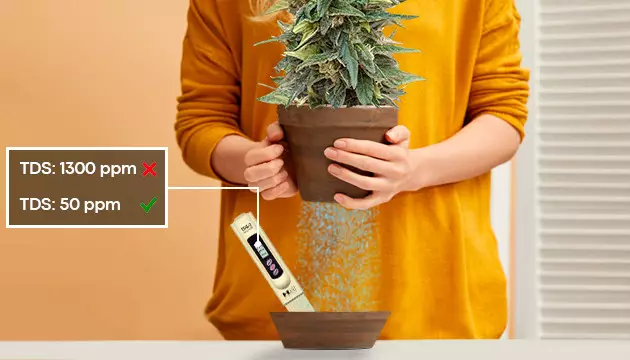
One way to ensure your flush is a success is to use a TDS (total dissolved solids) reader that will let you know just how pure the runoff water really is. When first collecting the runoff water, you’ll likely find that TDS levels are as high as 1300 ppm. You’ll want to keep flushing until these numbers drop to 50 ppm, or as close as possible to the TDS of the water you’re using to flush your plants. A TDS reader makes gauging flushing much more accurate than doing it by eye.
Some growers choose to flush plants with water and molasses. Why molasses? It’s said that doing so helps add incredible flavor and aroma. You don’t need much, though. Only 1TB of molasses per gallon of water is recommended for about a week before harvest instead of a straight water flush. While some growers swear by a molasses flush, it’s not necessary if you don’t want to do it.
When Not to Flush Cannabis Plants
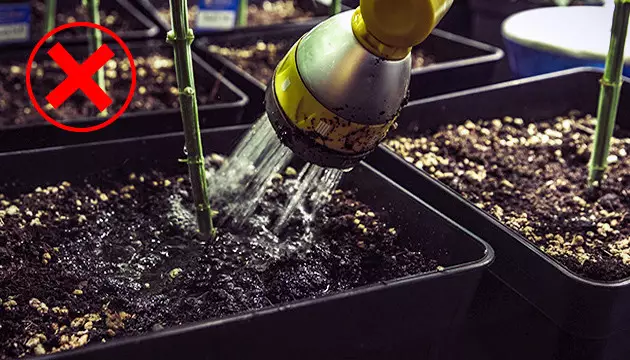
There is one instance where you won’t need to flush weed. This is when you’ve grown your plants in soil that’s already had nutrients added to it. Amended soil is designed to offer all the nutrients your plants need during the entire phase of their growth. If you flush cannabis plants that have been grown in amended soil, it can disrupt the perfectly maintained nutrient balance that such soils contain.
What Results Does Flushing Cannabis Offer?
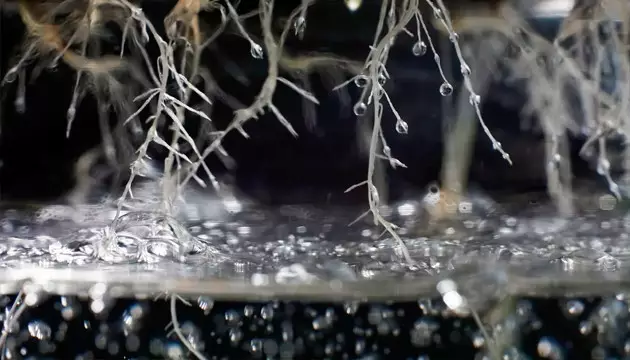
If you’re growing weed, you aim to get the best possible harvest in terms of both quality and quantity. You’re not growing to harvest some subpar smoke – you’re growing to harvest some serious, high-quality buds. Here’s where flushing comes in handy.
It’s said that flushing cannabis allows for a higher-quality smoke in the final product. Most growers flush their weed plants to improve the taste of their buds. If you’ve ever tried cannabis that was slightly “chemical”-tasting, it’s likely because the plants weren’t properly flushed. When too many nutrients are present at harvest, it can significantly affect the taste of your buds.
Experienced growers who flush their plants during the flowering stage eventually get a perfectly pure and natural taste. Not only does weed burn better, but it tends to smoke a lot smoother as well.
Debate and Discussion: Is Flushing Worth It?
Over the years, the cannabis flushing process has gained significant popularity among growers who consider it to be a crucial part of their cultivation process. However, an increasing number of growers also believe that cannabis flushing has no impact on the residual minerals in the plant, nor enhances potency. Surprisingly, some recent studies even suggest that unflushed cannabis has a better taste.
Recently, there has been a concerted effort to delve deeper into the topic of cannabis flushing to comprehend its effects and determine if it provides any scientifically measurable advantages. Given the substantial investment in the legal, licensed cannabis cultivation industry, there is a rising scientific interest in gaining a better understanding of the process of flushing.
RX Green Technologies, a company specializing in nutrients, conducted a study using identical cannabis plants that were grown uniformly but were given different flushing durations at the end of their blooming stage. Certain plants were not flushed at all, while others were flushed for either 7, 10, or 14 days.
According to the findings, there were no significant patterns or tendencies observed in terms of yields, terpene content, or THC levels that exceeded the margin of error in the experiment. This may come as a surprise to those who advocate for flushing, especially as the taste potency and yields of the cannabis plants were not noticeably impacted in either direction.
After the laboratory conducted tests on the buds, they were later passed on to a smoke test team for an impartial evaluation based on various factors. In general, the team did not notice any significant statistical patterns. Interestingly, when it came to flavor, almost half of the respondents (47%) rated the non-flushed weed as 'Good' quality. Furthermore, buds from the non-flushed marijuana plant received the highest 'Great' rating, as reported by 16% of the respondents.
In the end, the decision whether to flush or not remains a personal one. The science suggests that flushing may not dramatically alter the chemical makeup or taste of cannabis, but many cultivators still swear by it for reasons of tradition, flavor, or smoothness. Whatever path you choose, understanding the process gives you the tools to make an informed decision – and to grow with confidence.
FAQs About Flushing Cannabis
Q: What does flushing cannabis mean?
A: Flushing cannabis means giving your plants only plain water (no nutrients) for several days before harvest to remove excess chemical buildup.
Q: Is flushing cannabis necessary?
A: It depends on your growing method. Flushing is more important in synthetic and hydroponic grows than in organic or living soil setups.
Q: Can you flush too early?
A: Yes. Flushing too early can lead to nutrient deficiency and reduce yields. Use trichomes as your guide.
Q: What’s the ideal length of the flushing period?
A: This depends on your growing medium: soil (10-14 days), coco (7-10 days), or hydroponics (3-5) days.
Q: Do I need to flush if growing organically?
A: It's often recommended to flush only if you're using synthetic nutrients. Organic growers may avoid flushing altogether.
Final Thoughts
Flushing cannabis may polish your final product's flavor, smoothness, and overall quality, especially when growing with synthetic fertilizers. While not always required for organic grows, many growers still choose to do it as a finishing operation to reap clean, potent buds.
Ultimately, the decision depends on your growing style, nutrient regime, and personal preferences. Monitor your plants closely, especially trichome maturity, and adjust accordingly.
Herbies Head Shop expressly refuses to support the use, production, or supply of illegal substances. For more details read our Legal Disclaimer.
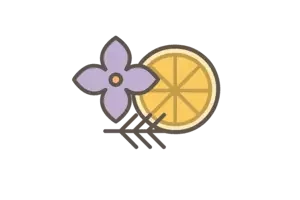







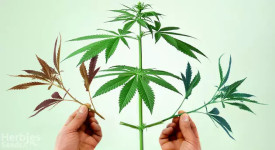

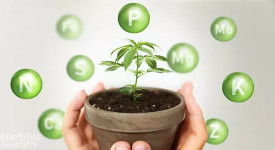
Thank you for leaving a comment for us!
Your feedback will be posted shortly after our moderator checks it.
Please note that we don’t publish reviews that: